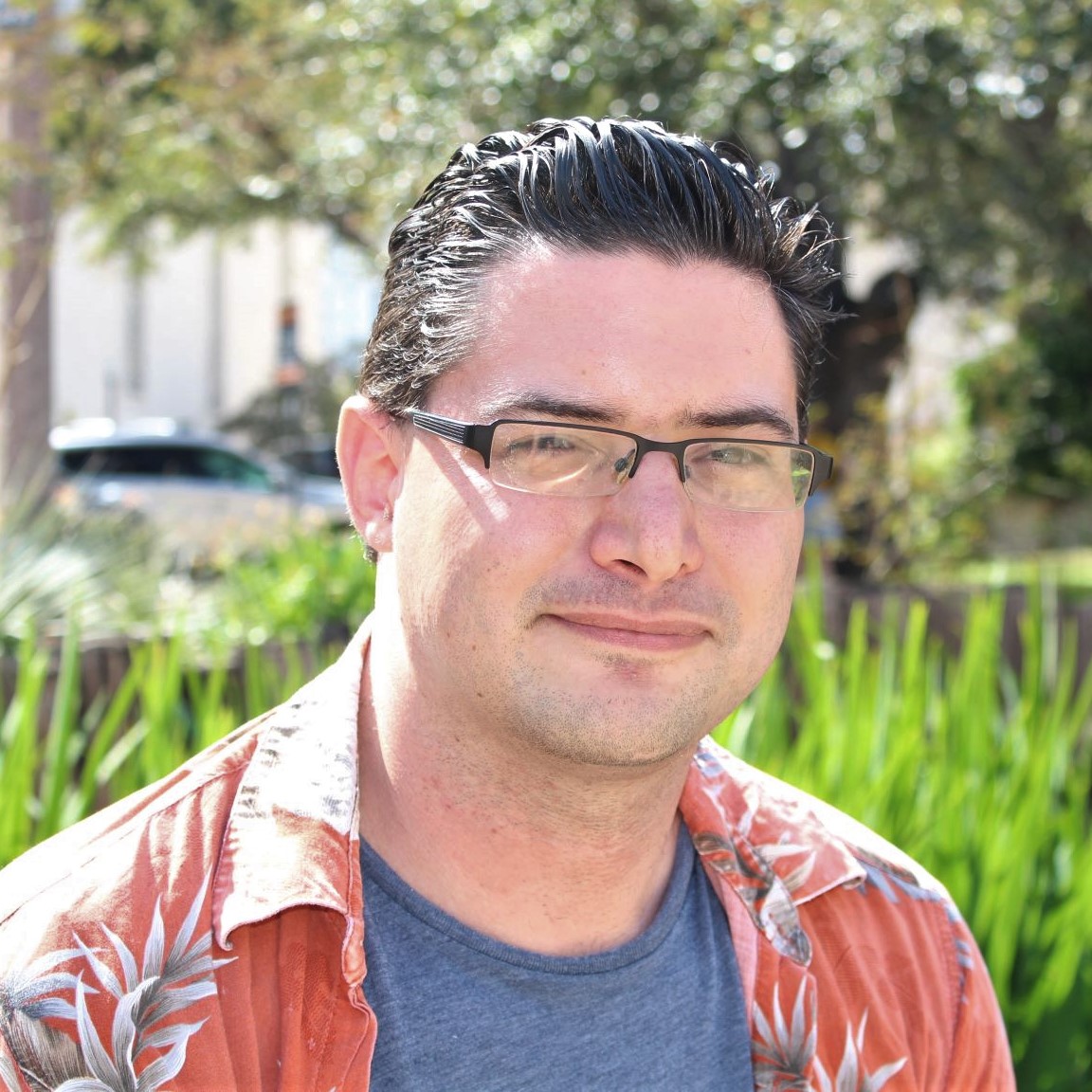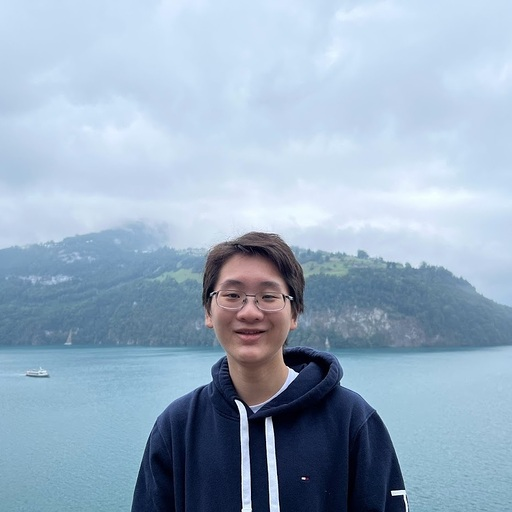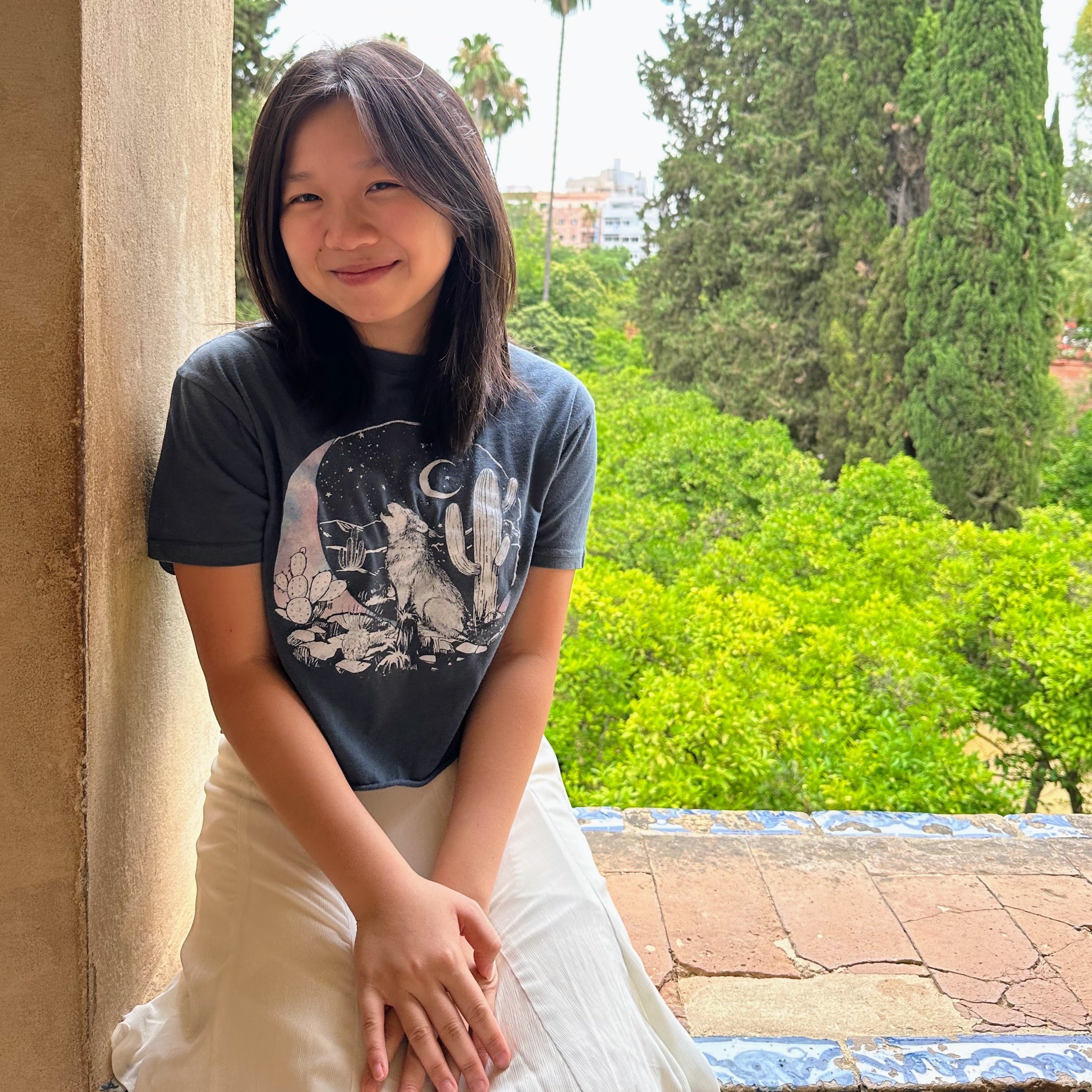Barrick Lab :: Team

Principal Investigator
 |
Prof. Jeffrey E. Barrick 🐋Professor of Molecular Biosciences (01/2011–present)B.S. Chemistry, Caltech Ph.D. Molecular Biophysics and Biochemistry, Yale University Postdoc, Michigan State University Twitter: @barricklab Prof. Barrick has a longstanding interest in fundamental and applied studies of molecular and microbial evolution. He is currently interested in intersections between those topics, synthetic biology, and entomology. He is an avid if plodding swimmer and enjoys the "classics" of literature, including a certain 19th century American novel involving a monomaniacal fascination with an albino cetacean. |
Lab Manager
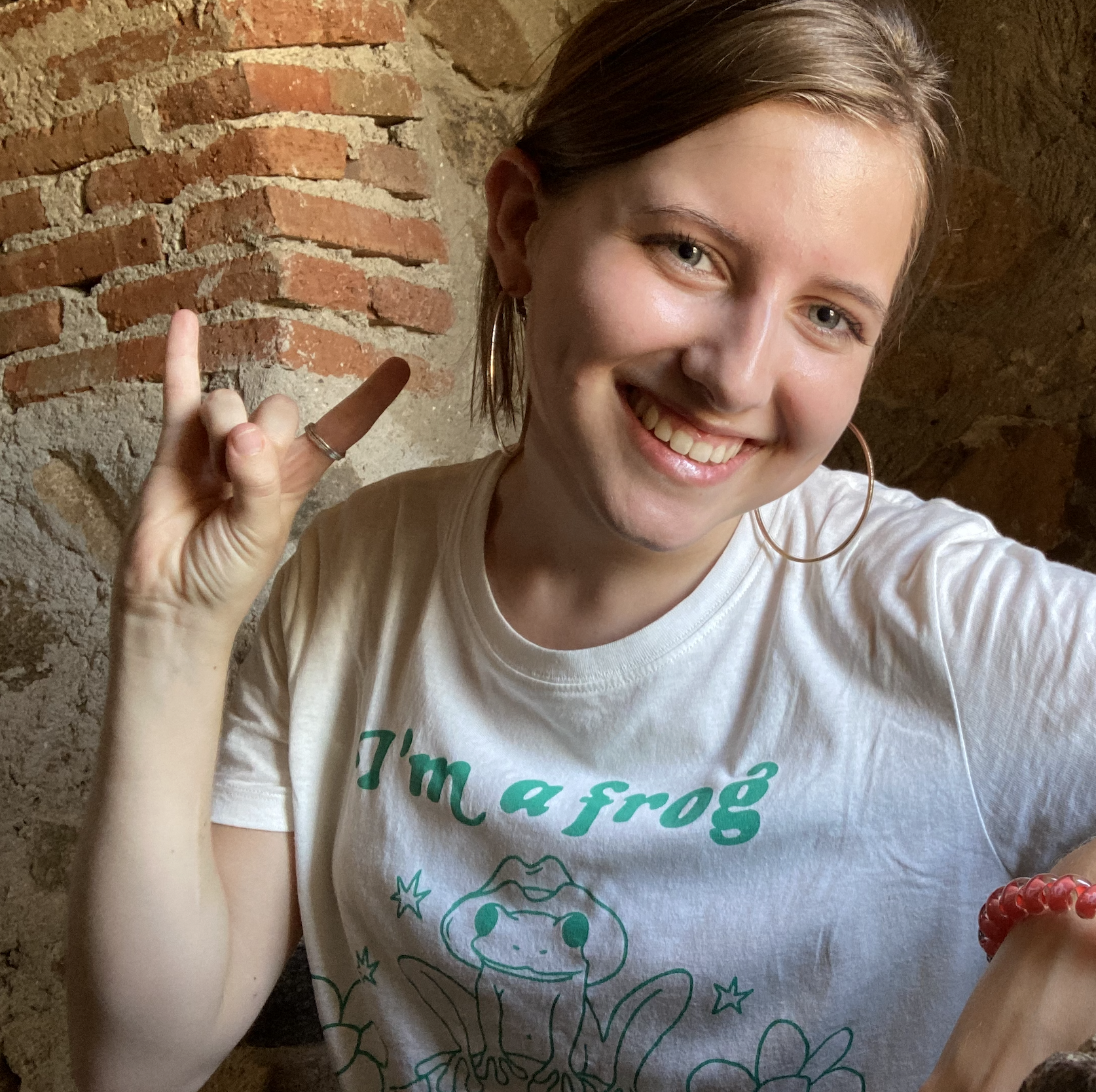 |
Alexa Morton 🐿️Lab Manager (07/2024 – present)Undergraduate Researcher (01/2023 – 05/2024) B.S. Biochemistry, University of Texas at Austin Alexa completed her undergraduate honors thesis |
Senior Researchers
 |
Prof. Dennis Mishler ⚔Assistant Professor of Practice and Research Educator for the Freshman Research Initiative (04/2013 – present)B.S. Chemistry and Biochemistry, University of California at San Diego Ph.D. Molecular Biophysics and Biochemistry, Yale University Postdoc Emory University Dr. Mishler leads the "Microbe Hackers" |
 |
Dr. Lucio Navarro 🪲Research Fellow (08/2023 – present) Jointly advised with Nancy MoranBS Biology, Universidad Industrial de Santander, Colombia. PhD Entomology, Purdue University, Indiana. Lucio is a Molecular Entomologist with broad research interests in arthropod genomics, insect-microbial symbiosis and insect-plant molecular interactions. He currently works on developing symbiont-mediated RNAi to be used on various applications, including functional genomics and future insect pest management methods. In his free time, Lucio enjoys stargazing and playing on little projects with Raspberry Pi microcomputers. |
Postdoctoral Fellows
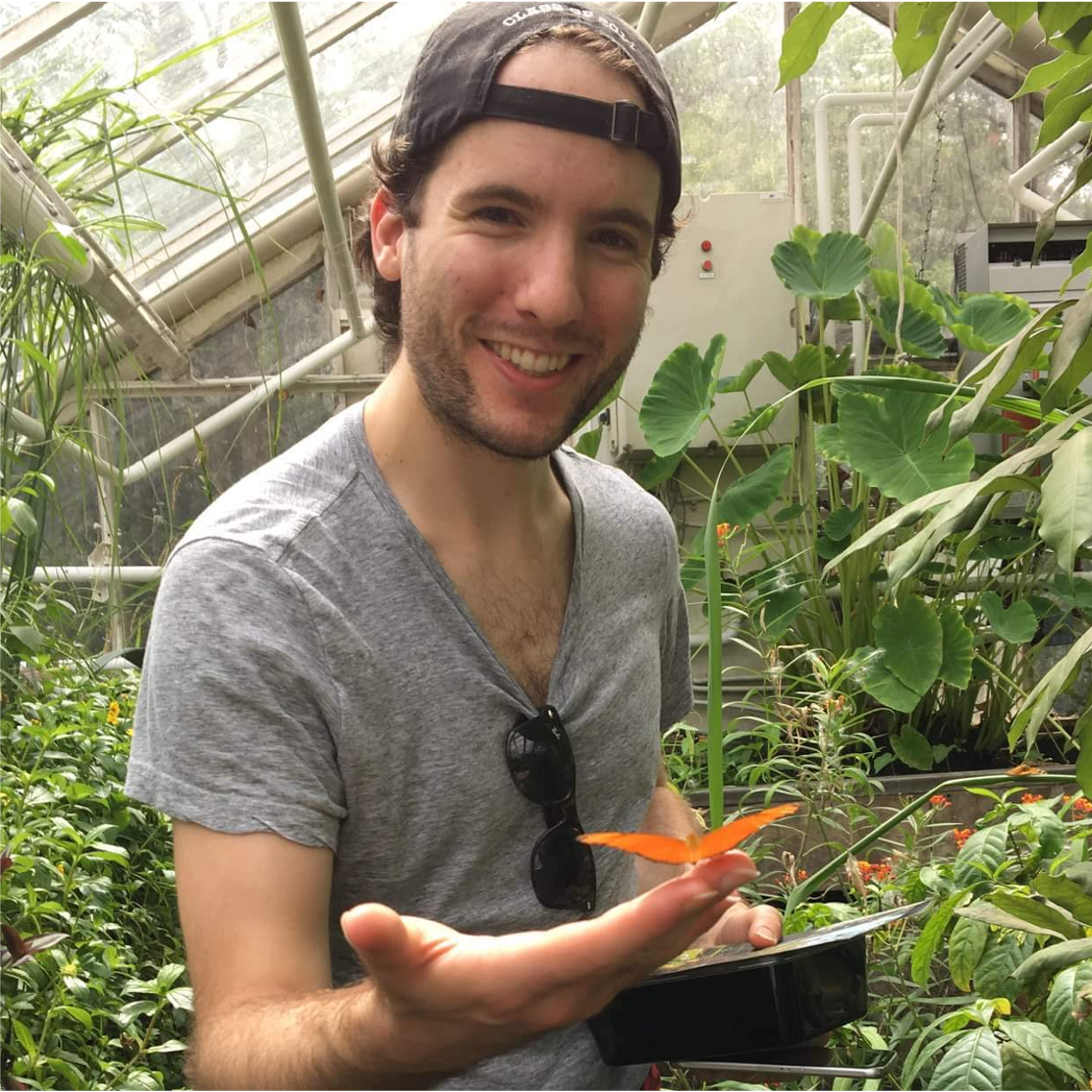 |
Dr. Patrick (PJ) Lariviere 🦉Postdoctoral Fellow (08/2021 – present) Jointly advised with Nancy MoranB.A. Biochemistry, Bowdoin College Ph.D. Biochemistry, Cellular and Molecular Biology, Johns Hopkins University School of Medicine As a molecular microbiologist with industry experience, PJ is broadly interested in both studying and engineering biological systems involving bacteria. He is currently developing molecular tools for use in engineering symbionts of honey bees. Ultimately, PJ hopes these tools would be beneficial both in basic science research and real world applications, allowing for more robust study of bee genetics and protection against pathogens. PJ is also interested in studying the interaction between honey bees and their bacterial symbionts at a molecular scale. Outside of lab, PJ enjoys running, biking, playing/listening to music, and playing with his dog Duncan. |
 |
Dr. Korin Jones 🌔Postdoctoral Fellow (09/2023 – present) Jointly advised with Nancy MoranB.A. Biology, Emory & Henry College Ph.D. Biology, Virginia Tech Korin is a microbial ecologist broadly interested in understanding the assembly of host associated microbial communities and the impacts that differences in community structure can have on hosts. He is currently exploring how differences in colonization timing interact with functional traits to determine strain-level competitive outcomes. He also has an interest in host specificity among closely related bacterial strains and how this influences differences in community composition between bumble bee and honey bee hosts. Korin’s hobbies include weightlifting, video games, and designing T-shirts and stickers. |
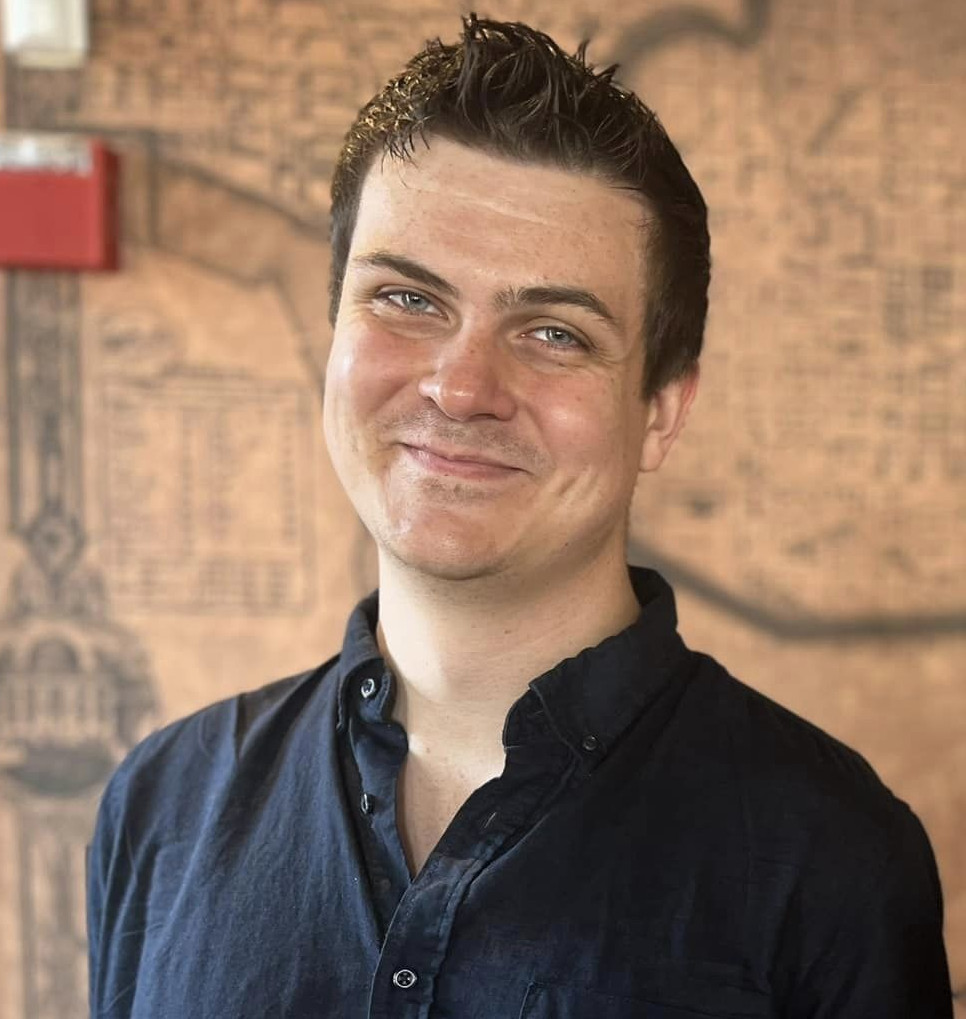 |
Cameron Roots 🦊Postdoctoral Fellow(01/2025 – present)B.S. Biochemistry; Molecular, Cellular, and Developmental Biology, University of Washington Ph.D. Biochemistry, University of Texas at Austin Website: www.croots.me Email: crootsATutexasDOTedu Cameron work seeks to improve our ability to predict burden and consequential behavior of small systems. His past work was in mitochondria systems genetics and cell-machine interfacing. Ultimately, Cameron would like to work towards synthetic biology as a system to solve human-derived problems like diabetes and pollution through contributing research, policy, or outreach. He has too many hobbies, but some highlights include Dungeons and Dragons, playing guitar, and running. |
Graduate Students
 |
Anthony VanDieren 🦂Microbiology Graduate Student (04/2023 – present)B.S.E.S. Entomology, University of Georgia B.S.A. Biological Science, University of Georgia B.S.A. Chemistry, University of Georgia Email: avandierenATutexasDOTedu Anthony is interested in insects and their corresponding symbionts which affect many aspects of their physiology. Currently, Anthony works with aphids and is attempting to engineer their vertically inherited symbionts. Before coming to UT, Anthony worked as an analytical chemistry lab technician for Henkel and served as a staff entomologist for the Cranbrook Institute of Science in Michigan. Anthony was also an undergraduate reasearcher working on kissing bugs and their gut symbionts. Anthony is a serious entomologist and enjoys finding, rearing, and preserving various exotic insects and arachnids when not in lab. |
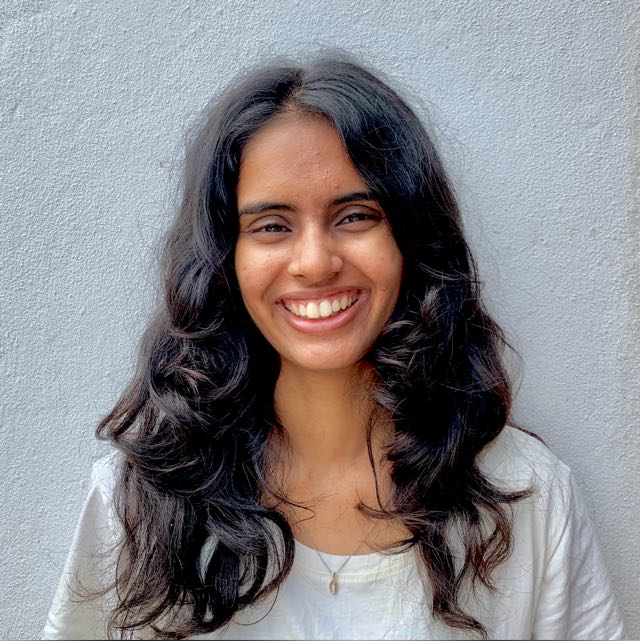 |
Ira Zibbu 🐁Cell and Molecular Biology Graduate Student (01/2025 – present)BS-MS in Biology with a minor in Data Science, Indian Institute of Science Education and Research Thiruvananthapuram Email: irazibbu@utexas.edu Personal Website: https://ira-zibbu.github.io/ Part evolution enthusiast, part computer nerd, Ira is broadly interested in combining the open-ended nature of experimental evolution with the power of next-generation sequencing and molecular biology to ask questions about how microbes evolve. At the Barrick Lab, she is working to understand how selection, mutation, contingency and drift interact to shape the structure and function of bacterial genomes, and how in turn certain genomic configurations can preclude or promote specific future evolutionary paths. In the context of the LTEE, Ira is looking at large scale genome rearrangements to understand how they evolved, and the effects they have had on the populations. As an undergraduate, Ira hopped around a lot, tinkering with projects on insect ecology, differential equation models of chemotaxis, synthetic biology, and machine learning for protein-ligand affinity predictions. Ira strongly believes that the scientific process benefits from removing barriers to participation, and has interests in teaching, mentoring and outreach. In her spare time, she likes going to the gym, biking on her beloved cycle, musical theater, philosophy of science, contemporary fiction and cooking. |
Undergraduate Researchers
Undergraduate Lab Technicians
Topic revision: r291 - 2025-04-16 - AlexaMorton
Ideas, requests, problems regarding TWiki? Send feedback
